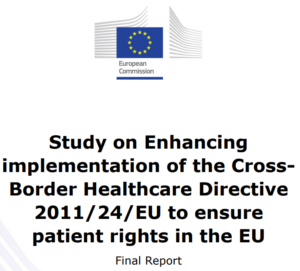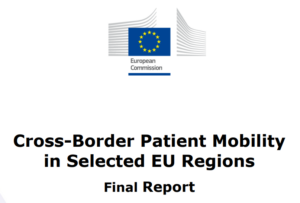
Our core content on Lung conditions and related factsheets has been translated to a number of other languages.
For more languages explore all available Factsheet translations.
Volunteer as a translator or learn how to translate using Chrome, Firefox or Edge browsers.
 European Lung Foundation
European Lung Foundation


Our core content on Lung conditions and related factsheets has been translated to a number of other languages by our volunteer team.
For more languages explore all available Factsheet translations.
Volunteer as a translator or learn how to translate using Chrome, Firefox or Edge browsers.
Home » Cross-border healthcare in the EU: status, challenges and recommendations

Two recent studies from the European Commission provide an overview of current access to cross-border treatment and recommendations to improve the information available to patients seeking healthcare abroad.
The European Commission (EU) has recently published two studies on the EU Directive on cross-border healthcare. The studies look at the current access patients have to treatment in countries other than their own. They give some guiding principles to improve information for patients who want to access healthcare abroad.
 The first study focusses on the implementation of the Directive in the EU. It explains the steps that patients must take in their own country and the administrative procedures they are required to follow to be reimbursed for their healthcare abroad. These procedures can cause barriers for many patients. For this reason, one of the study outcomes is a report with guiding principles on how to improve the information available to patients on the types of healthcare that require authorisation before accessing it in another country.
The first study focusses on the implementation of the Directive in the EU. It explains the steps that patients must take in their own country and the administrative procedures they are required to follow to be reimbursed for their healthcare abroad. These procedures can cause barriers for many patients. For this reason, one of the study outcomes is a report with guiding principles on how to improve the information available to patients on the types of healthcare that require authorisation before accessing it in another country.

The second study summarises patient movement across borders of Germany, France, Belgium, Luxembourg, Austria, Slovakia, Poland and the Czech Republic. The results show that there is not enough data to assess the impact of cross-border healthcare under the Directive. It gives recommendations on how to improve the collection of data about patient movement by collaborating with national and regional authorities, healthcare insurers and other stakeholders.
These studies overall reflect the Commission’s ongoing work to evaluate the impact of the EU Directive on cross-border healthcare on patients looking for healthcare abroad.
Read the study – Cross-border patient mobility in selected EU regions
Sign up to get the latest information and research on lung conditions, hear about our upcoming events and campaigns, plus views from experts and patients! You can unsubscribe at any time.
ELF is a non-profit organisation registered as a UK company (VAT no. GB 115 0027 74) and charity (no. 1118930).
Our Brussels office enterprise number is 0738.383.695
European Lung Foundation's TR ID number in the Transparency Register is: 094039644810-79